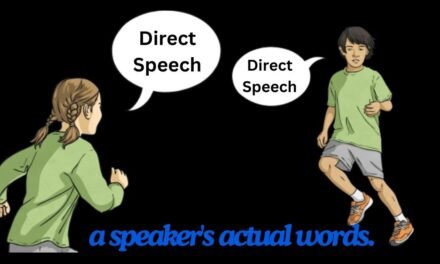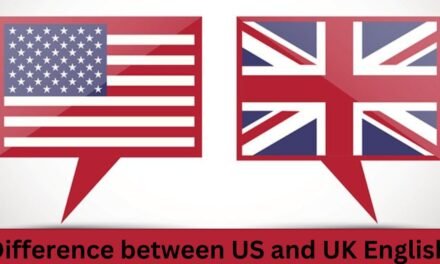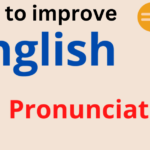Present tenses
The present tense is the workhorse of verb tenses in English. It’s what we use to talk about everything happening right now, from the cup of coffee you’re sipping to the habits you follow every day. But there’s more to the present tense than meets the eye. In this guide, we’ll delve into the four main forms of the present tense, untangling their uses and helping you master them like a pro.
Confused by when to use “am working” versus “work”? You’re not alone! English has a surprisingly rich set of present tenses, each with its own specific purpose. Understanding these nuances can take your grammar from good to great. Let’s explore the fascinating world of present tenses and unlock the secrets of clear and confident communication.
Imagine you’re telling a story. If you jump between tenses constantly, it can be confusing for the listener. Tenses help you establish a clear timeline for your communication, whether it’s a conversation, a story, or a written piece. Using the correct tense keeps things flowing smoothly and allows the listener or reader to understand the sequence of events and the relationship between them.
Importance of present tenses
- No More Confusing Stories: Imagine telling a story where you jump between “yesterday,” “right now,” and “tomorrow” all over the place. It’s like a confusing traffic jam for your listener’s brain! The present tenses are like traffic signals. They keep your communication organized, so listeners can easily understand the order of events and how they connect.
- Saying Exactly What You Mean: The present tense isn’t a one-size-fits-all situation. Think about it like having different tools in your toolbox. Do you want to brag about your daily jog routine? The “present indefinite” is your perfect tool! Need to describe the delicious dinner you’re making at this very moment? The “present continuous” jumps in to help. Knowing these different tenses lets you choose the right one for the job, ensuring your message is understood exactly as you intended.
- Painting a Picture with Your Words: The present tense can take your descriptions from boring to brilliant! Whether you’re talking about the regular rhythm of your morning coffee ritual or the excitement of a party you’re planning, the present tense lets you capture the feeling of the moment. It’s like a time machine for your words, transporting your listener right into the scene you’re describing.
- Unlocking Communication Superpowers: Mastering the present tense opens doors to all sorts of communication adventures. From chatting with friends to writing emails or telling captivating stories, using the present tenses correctly shows you have a strong command of English. This is a superpower that can help you shine in school, work, and social situations!
Present Tenses types
The present tense may seem like a simple concept, but within its realm lies a surprising richness. It allows us to talk about actions happening right now, habits we follow religiously, and even completed events that continue to have an impact on the present. Mastering these nuances is key to clear and effective communication. Let’s delve deeper into the four main present tenses:
1. Present Indefinite
- Definition: The present indefinite reigns supreme when it comes to expressing habits, routines, and general truths. It depicts actions that happen repeatedly or regularly, without pinpointing a specific time.
- Where to Shine: This tense thrives in situations like describing everyday occurrences, scientific facts, or timeless statements.
- How to Wield It: The formula is simple: Subject + verb (base form) for most subjects. However, for 3rd person singular subjects (he, she, it), you’ll need to introduce auxiliary verbs: Subject + does/doesn’t + verb (base form).
Examples of present indefinite tense(simple)
- Ali always helps others in need.
- I go for a walk every morning.
- He reads the newspaper every day.
- She writes a letter.
- We usually eat dinner around 7 pm.
- You all work hard.
- They live in a big city.
Examples of present indefinite tense(Negative)
- Ali doesn’t always help others in need.
- He doesn’t read the newspaper every day.
- She isn’t writing a letter.
- We don’t usually eat dinner around 7 pm.
- You all don’t work hard.
- They don’t live in a big city.
- I don’t go for a walk every morning.
2. Present Continuous
- Definition: The present continuous steps in to depict actions happening at the very moment of speaking or around that time. It emphasizes that the action is ongoing, not a completed event.
- Where to Take Center Stage: This tense flourishes when describing actions in progress, temporary situations, or planned events scheduled for the near future.
- How to Command It: The key is to combine the subject with the appropriate form of the verb “to be” (am, is, are) followed by the verb’s present participle form (ending in -ing). Subject + be (am/is/are) + verb (present participle ending in -ing)
Examples of present continuous tense(simple)
- She is cooking dinner right now.
- We are learning about present tenses in English.
- I am meeting my friend for coffee later.
Examples of present continuous tense(negative)
- She is not cooking dinner right now.
- We are not learning about present tenses in English.
- I am not meeting my friend for coffee later.
3. Present Perfect
- Definition: The present perfect acts as a bridge, connecting actions completed at some indefinite time in the past to the present moment. The focus here is on the result or completion of the action, not the specific time it happened.
- Where to Find Its Calling: This tense thrives when discussing experiences in someone’s lifetime, achievements, recent events, and actions with an unfinished timeframe.
- How to Master It: The formula involves the subject followed by “have” or “has” depending on the subject, and then the past participle of the verb. Subject + have/has + past participle
Examples of present perfect tense(simple)
- I have visited many countries in my lifetime.
- She has written three novels so far.
- They have just arrived.
- Ali has not seen him all week.
Examples of present perfect tense(negative)
- I haven’t visited many countries in my lifetime.
- She hasn’t written three novels so far.
- They haven’t arrived at the police station.
- Ali hasn’t seen him this week.
4. Present Perfect Continuous
- Definition: The present perfect continuous takes the concept a step further. It describes actions that began in the past and are still ongoing in the present, or have just been completed but their effects linger. Here, the emphasis is on the duration of the action and its connection to the present.
- Where it Takes the Spotlight: This tense shines when describing actions that started in the past and continue up to the present, often with a visible result, or actions recently completed that have a lasting effect.
- How to Employ It: The formula involves the subject followed by “have” or “has” depending on the subject, then “been” and the verb’s present participle form (ending in -ing). Subject + have/has + been + verb (present participle ending in -ing)
Examples of present perfect continuous tense(simple)
- They have been working on the project for weeks.
- My muscles have been aching since yesterday’s workout.
Examples of present perfect continuous tense(negative)
- They haven’t been working on the project for weeks.
- My muscles haven’t been aching since yesterday’s workout.
- The girl hasn’t been writing since morning.
By mastering these four distinct present tenses, you’ll be equipped to express yourself with remarkable clarity and precision. Remember, the choice of tense hinges on the specific situation and the message you aim to convey. So, hone your skills, and conquer the art of expressing the “now” in all its rich complexity!










You have brought up a very good points, thankyou for the post.
An impressive share, I just given this onto a colleague who was doing just a little evaluation on this. And he in actual fact bought me breakfast as a result of I discovered it for him.. smile. So let me reword that: Thnx for the treat! But yeah Thnkx for spending the time to discuss this, I really feel strongly about it and love reading extra on this topic. If possible, as you develop into expertise, would you mind updating your weblog with more particulars? It is extremely helpful for me. Big thumb up for this weblog put up!
This is a very good tips especially to those new to blogosphere, brief and accurate information… Thanks for sharing this one. A must read article.
I’ve read some excellent stuff here. Definitely worth bookmarking for revisiting. I wonder how a lot attempt you put to make this type of magnificent informative site.